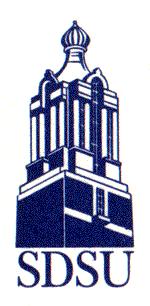|
|
Canku Ota |
|
|
(Many Paths) |
||
|
An Online Newsletter Celebrating Native America |
||
|
March 10, 2001 - Issue 31 |
||
|
|
||
|
Class Draws Indians to Journalism |
||
|
by Steve Young The Argus Leader |
||
 An effort
to bring more diversity into America's newsrooms will unfold this summer during the month-long American Indian
Journalism Institute at the University of South Dakota. An effort
to bring more diversity into America's newsrooms will unfold this summer during the month-long American Indian
Journalism Institute at the University of South Dakota. The program, funded and run by the Freedom Forum Neuharth Center at the University of South Dakota in Vermillion, will train 25 college-level Native Americans as newspaper reporters, editors and photographers. In so doing, Freedom Forum directors hope to improve cultural diversity and sensitivity in newsrooms across the nation. "American Indians are by far the most underrepresented people of color in the news media ... and stereotypical and erroneous newspaper coverage of Indian issues and Indian people shows it," said Dennis McAuliffe Jr., a Freedom Forum diversity fellow and journalism professor at the University of Montana. McAuliffe and Jack Marsh, director of the Freedom Forum Neuharth Center, are co-directors of the institute. It's estimated that 50 to 300 tribal people are working at daily newspapers out of 55,000 journalists nationwide, said McAuliffe, who belongs to the Osage tribe. The institute will be run June 3-29 at USD. Participants must be in college or college-bound, and nominated by educators, mentors or other interested parties. McAuliffe believes most will come from the nation's 31 tribal colleges, where for the most part, journalism isn't taught. "One of my beliefs is, they don't go into journalism in greater numbers because they don't think of it," McAuliffe said of tribal people. "Journalism is the most overlooked career in Indian country."  At the American Indian Journalism Institute, the participants will spend a week each on reporting,
editing and photography. Weekly field trips will expose them to sportswriting, political reporting, covering reservation
news, and crimes and courts. At the American Indian Journalism Institute, the participants will spend a week each on reporting,
editing and photography. Weekly field trips will expose them to sportswriting, political reporting, covering reservation
news, and crimes and courts. Afterward, institute organizers intend to place the participants in newspaper internships, provide further schooling and even help them with job placement. McAuliffe said he's also been tinkering with launching a national online Native American student newspaper. Students then could go back to their respective tribal colleges, cover events in their area, then e-mail them to McAuliffe to be placed in the online newspaper. "I am so excited about this institute," he said. "I personally believe this could really make a difference in dramatically increasing the number of Native American journalists." Graduates of the institute will be eligible for six semester hours of credit. The Freedom Forum will pay all the costs, including tuition, fees, room and board. Students who successfully complete the program also will receive an $800 scholarship or stipend. The Freedom Forum Neuharth Center also pays for and co-directs the Native American Newspaper Career Conference at the Crazy Horse Memorial near Custer. The workshop is April 24-26 this year and will introduce Native American high school and tribal college students to the possibilities of a journalism career. Reach reporter Steve Young at syoung@argusleader.com or 331-2306 |
|
Freedom Forum
Online |
|
Native Journal |
|
|
||
|
|
||
| Canku Ota is a free Newsletter celebrating Native America, its traditions and accomplishments . We do not provide subscriber or visitor names to anyone. Some articles presented in Canku Ota may contain copyright material. We have received appropriate permissions for republishing any articles. Material appearing here is distributed without profit or monetary gain to those who have expressed an interest. This is in accordance with Title 17 U.S.C. section 107. | ||
|
Canku Ota is a copyright © 2000, 2001 of Vicki Lockard and Paul Barry. |
||
|
|
The "Canku Ota - A Newsletter Celebrating Native America" web site and its design is the |
|
|
Copyright © 1999, 2000, 2001 of Paul C. Barry. |
||
|
All Rights Reserved. |
